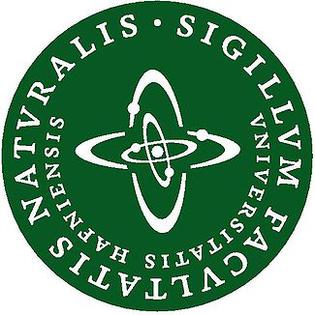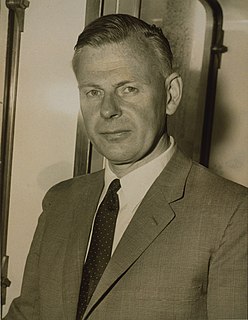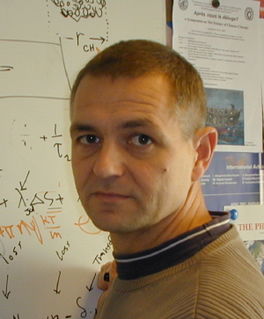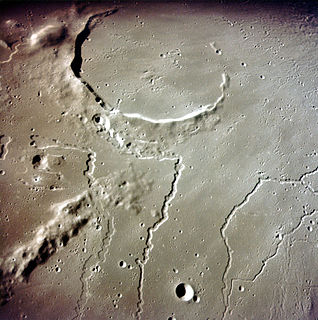
Aage Niels Bohr was a Danish nuclear physicist who shared the Nobel Prize in Physics in 1975 with Ben Mottelson and James Rainwater "for the discovery of the connection between collective motion and particle motion in atomic nuclei and the development of the theory of the structure of the atomic nucleus based on this connection". Starting from Rainwater's concept of an irregular-shaped liquid drop model of the nucleus, Bohr and Mottelson developed a detailed theory that was in close agreement with experiments. Since his father, Niels Bohr, had won the prize in 1922, he and his father were one of the six pairs of fathers and sons who have both won the Nobel Prize and one of the four pairs who have both won the Nobel Prize in Physics.

Niels Henrik David Bohr was a Danish physicist who made foundational contributions to understanding atomic structure and quantum theory, for which he received the Nobel Prize in Physics in 1922. Bohr was also a philosopher and a promoter of scientific research.

The Niels Bohr Institute is a research institute of the University of Copenhagen. The research of the institute spans astronomy, geophysics, nanotechnology, particle physics, quantum mechanics and biophysics.
Igor Dmitriyevich Novikov is a Russian theoretical astrophysicist and cosmologist.

The University of Copenhagen (UCPH) is a public research university in Copenhagen, Denmark. Founded in 1479, the University of Copenhagen is the second-oldest university in Scandinavia, and ranks as one of the top universities in the Nordic countries and Europe.

The UCPH Department of Mathematical Sciences is a department under the Faculty of Science at the University of Copenhagen (UCPH). The department is based at the university's North Campus in Copenhagen.

The Faculty of Science at the University of Copenhagen houses 12 departments, including the Natural History Museum of Denmark. The faculty also encompasses several national and international research centres, and has a number of field stations in Denmark and Greenland, among them the university's Arctic Station in central West Greenland. The faculty's administration is housed at the university's Frederiksberg Campus.

Bengt Georg Daniel Strömgren was a Danish astronomer and astrophysicist.
The National Space Institute at the Technical University of Denmark, also known as DTU Space, is a Danish sector research institute and a part of the Technical University of Denmark. It has a staff of 169, including researchers, engineers, and technicians.

Henrik Svensmark is a physicist and professor in the Division of Solar System Physics at the Danish National Space Institute in Copenhagen. He is known for his theory on the effects of cosmic rays on cloud formation as an indirect cause of global warming.
Eigil Friis-Christensen was a Danish geophysicist specializing in space physics.

Feryal Özel is a Turkish astrophysicist born in Istanbul, Turkey, specializing in the physics of compact objects and high energy astrophysical phenomena. As of 2020, Özel is a professor at the University of Arizona in Tucson, in the Astronomy Department and Steward Observatory.

Planetary science or, more rarely, planetology, is the scientific study of planets, moons, and planetary systems and the processes that form them. It studies objects ranging in size from micrometeoroids to gas giants, aiming to determine their composition, dynamics, formation, interrelations and history. It is a strongly interdisciplinary field, originally growing from astronomy and earth science, but which now incorporates many disciplines, including planetary geology, cosmochemistry, atmospheric science, oceanography, hydrology, theoretical planetary science, glaciology, and exoplanetology. Allied disciplines include space physics, when concerned with the effects of the Sun on the bodies of the Solar System, and astrobiology.

Hilde Levi was a German-Danish physicist. She was a pioneer of the use of radioactive isotopes in biology and medicine, notably the techniques of radiocarbon dating and autoradiography. In later life she became a scientific historian, and published a biography of George de Hevesy.

Anja Cetti Andersen is an astronomer and astrophysicist from Hørsholm, Denmark.
Dorthe Dahl-Jensen is a Danish palaeoclimatology professor and researcher at the Centre for Ice and Climate at the Niels Bohr Institute, University of Copenhagen in Denmark. Her primary field is the study of ice and climate, specifically the reconstruction of climate records from ice cores and borehole data; ice flow models to date ice cores; continuum mechanical properties of anisotropic ice; ice in the solar system; and the history and evolution of the Greenland Ice Sheet.
The North Campus is one of the University of Copenhagen's four campuses in Copenhagen, Denmark. It is situated just north of the city centre, across from Copenhagen's largest park, Fælledparken, and between the Østerbro and Nørrebro districts. It is home to the Faculty of Science and the Faculty of Health and Medical Sciences.

Helge Stjernholm Kragh is a Danish historian of science who focuses on the development of 19th century physics, chemistry, and astronomy. His published work includes biographies of Paul Dirac, Julius Thomsen and Ludvig Lorenz, and The Oxford Handbook of the History of Modern Cosmology (2019) which he co-edited with Malcolm Longair.
![Institute of Theoretical Astrophysics a department of the [[University of Oslo]]](https://upload.wikimedia.org/wikipedia/commons/thumb/7/78/Svein_Rosselands_hus_Blindern.jpg/320px-Svein_Rosselands_hus_Blindern.jpg)
The Institute of Theoretical Astrophysics is a research and teaching institute dedicated to astronomy, astrophysics and solar physics located at Blindern in Oslo, Norway. It is a department of The Faculty of Mathematics and Natural Sciences at the University of Oslo. It was founded in its current form by Svein Rosseland with funding from the Rockefeller Foundation in 1934, and was the first of its kind in the world when it opened. Prior to that, it existed as the University Observatory which was created in 1833. It thus is one of the university's oldest institutions. As of 2019, it houses research groups in cosmology, extragalactic astronomy, and The Rosseland Centre for Solar Physics, a Norwegian Centre of Excellence.
The Cosmic Dawn Center is an Astronomy/Cosmology research center, founded as a collaboration between the Niels Bohr Institute of the University of Copenhagen and DTU Space of the Danish Technical University (DTU). The center is led by center director and NBI Professor Sune Toft and center co-director Thomas Greve, Professor at DTU and UCL. The main objective of the center is to investigate the period known as the Cosmic Dawn, i.e. the reionization of the Universe and the formation of the first galaxies, through observations as well as through theory and simulations. The Cosmic Dawn Center also runs two summer programs for mainly U.S. undergraduates, the DAWN-IRES program, funded by National Science Foundation, and a SURF program for California Institute of Technology students.












![Institute of Theoretical Astrophysics a department of the [[University of Oslo]]](https://upload.wikimedia.org/wikipedia/commons/thumb/7/78/Svein_Rosselands_hus_Blindern.jpg/320px-Svein_Rosselands_hus_Blindern.jpg)